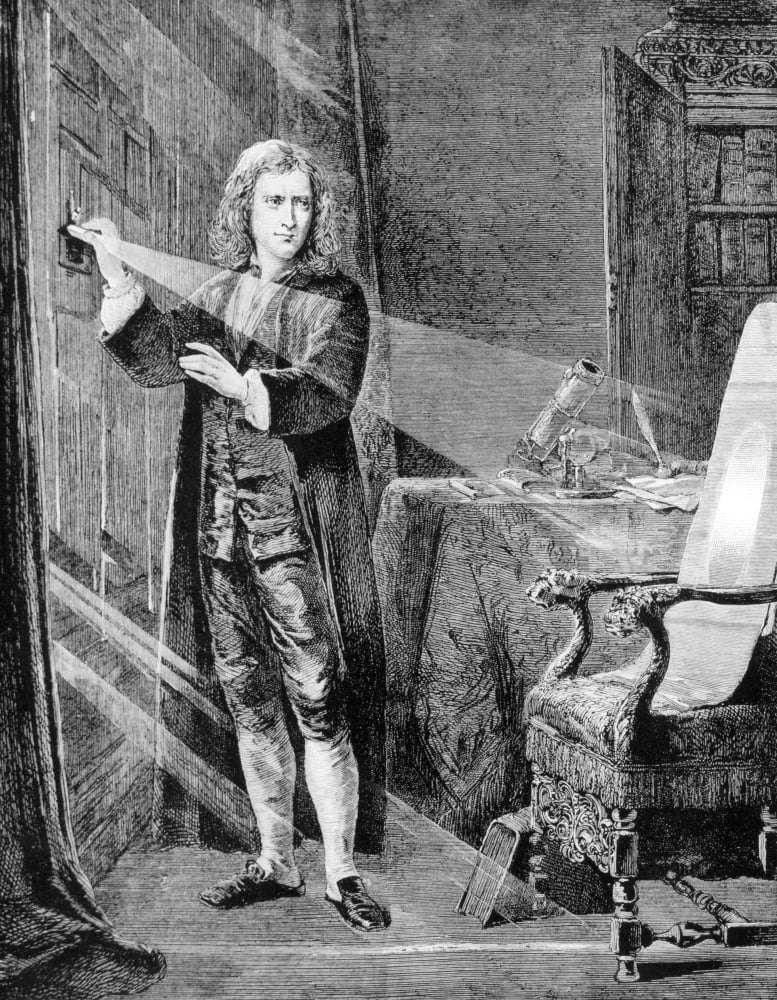


His appointment as warden of the Mint cemented Newton’s party-political loyalties, which had been wavering in 1695, when he plumped for the Country Whig Henry Boyle* in the university election.
Sir isaac newton ii full#
In fact, Newton seems to have given the work of the office his full attention, and to have carried out a thorough reform of the Mint in the process of supervising the details of the recoinage, during the course of which he gave evidence, in April 1697, to the Commons’ committee to inquire into abuses there. and has not too much business to require attendance than you may spare’. Montagu wrote encouragingly that this was ‘the most proper for you, ’tis the chief officer in the Mint ’tis worth £500 or £600 p.a. What he received, in March 1696, was the wardenship. In the winter of 1695–6, as Montagu and his Treasury colleagues faced a looming crisis over the coinage, Newton was one of those who tendered advice, and it would appear that in return he was promised the mastership of the Mint, an office he had coveted earlier. At this point Montagu’s influence was probably still inadequate to the provision of some suitable employment for a client, but even after the balance of the ministry had shifted towards the Whigs nothing was done for Newton until his particular mathematical and scientific expertise was needed. What he took to be wilful neglect by the ‘great men’ of his party angered him deeply: Montagu, he declared, ‘upon an old grudge, which I thought had been worn out, is false to me’. Besides Montagu, he had hopes of assistance from old friends like John Hampden† and John Locke, and through Locke had made contact with the Earl of Monmouth, upon whom he placed all his hopes when by 1692 Montagu seemed to have failed him. Though he had retired from Parliament, he clearly expected to be rewarded with preferment, looking in particular for a recommendation from his former pupil Charles Montagu*, but the prospect held out to him in 1690 of the mastership of Charterhouse did not appeal: it was not worth the ‘confinement to the London air, and to such a way of living as I am not in love with’. At the poll he voted, as many others did, for the Tory Sir Robert Sawyer*, in protest against the injustice committed against Sawyer in his expulsion from the Commons the year before, but cast his other vote for the Whig John Bennet. He had been willing, for example, to be returned for his university to the Convention, but in 1690, his duty done and the constitutional crisis passed, he did not seek re-election. Nevertheless, there were still occasions on which he could be useful to his party, when his intellectual powers were placed at the service of Whig governments and, more exceptionally, when he agreed to put his reputation within his own university to the service of the Whig interest by standing himself as a parliamentary candidate. Nor did he possess the gregariousness essential to a successful parliamentarian: ‘he was full of thought, and spoke very little in company, that his conversation was not agreeable.’ Moreover, he spoke his mind. His Whiggism, an expression of the violent anti-Catholic prejudice that accompanied his radical brand of Protestantism, was not broadened by reflection.
Sir isaac newton ii professional#
Politics intruded as little into Newton’s scientific, academic and professional preoccupations as the brevity of his Commons membership would suggest. Paul’s cathedral 1715–21 chief manager of tin, Tower of London 1718 comptroller of copper coinage for Ire. building 50 new churches 1712– d., finishing St. of James Ayscough of Market Overton, Rutland. of Isaac Newton of Woolsthorpe by Hannah, da.


 0 kommentar(er)
0 kommentar(er)
